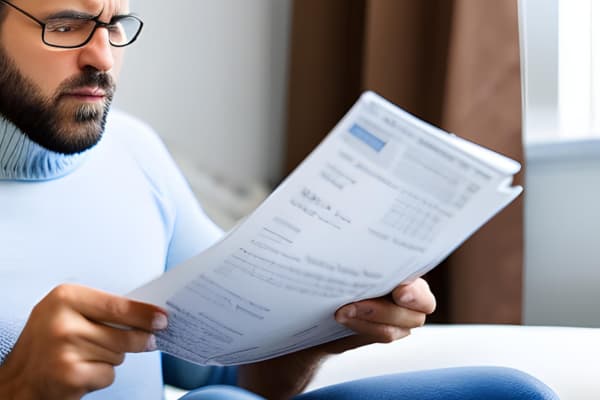Can You Get a Mortgage After Chapter 7 Bankruptcy?
Many people wonder how much filing for Chapter 7 bankruptcy will impact their financial future. One major question will be if getting a mortgage is impossible or not after you file for Chapter 7 in Michigan.
Filing for bankruptcy can greatly impact your creditworthiness. Filing for bankruptcy is an acknowledgement that you cannot pay your debts. While declaring bankruptcy can reduce your debt-to-income (DTI) ratio by canceling a portion or entirety of your debt, it’s important to note that DTI isn’t the primary factor responsible for the decline in your credit score. Instances such as missed payments, debts in collections, and the actual act of filing for bankruptcy can all contribute to a negative effect on your credit score. These adverse impacts can linger on your credit report for a duration of seven years, and in certain cases, extend up to a decade.

Can You Get a Mortgage After Filing For Bankruptcy?
As there are several different chapters in the U.S. bankruptcy code, how you file matters. Bankruptcy doesn’t exempt you from getting a mortgage, but it might make it a little more challenging. A bankruptcy discharge is a court order that releases a debtor from any obligation to repay certain debts. Depending on the financial institution, it can take anywhere from one to four years after your bankruptcy discharge to become eligible to take out a mortgage. Additionally, it typically takes time to rebuild your credit enough to qualify for the mortgage you may want.
How Does Chapter 7 Bankruptcy Impact Your Ability To Get a Mortgage?
Chapter 7 bankruptcy is the most common way to file bankruptcy. The process often involves a government liquidation of your assets to pay off your debts. Eventually, any remaining debt may be discharged, but you’re typically responsible for paying as much of the remaining debt as possible.
If you’re applying for a conventional mortgage, you may need to wait at least four years after your discharge date. On the other hand, you may be eligible for an FHA or VA loan after only one to two years from the discharge date depending on the financial institution and whether you meet the remaining qualifications for those loans.
Another option you might have is, if you own a business, purchasing property through your business. Banks have different methods of lending businesses money, and this is an option some take, as they run their businesses from their homes. To learn more about where banks get money to lend, you can check out this Supermoney article.
How To Improve Your Odds of Qualifying For a Mortgage After Chapter 7 Bankruptcy.
There are many ways to increase the likelihood of qualifying for a mortgage, even with a bankruptcy on your credit report. Good habits and discipline will help you increase your credit score over time. Some common steps to take in order to help improve your credit score include:
- Making payments toward your other debts: Making consistent, payments is one way to improve your credit after bankruptcy. It may be for a credit card, car loan or even student loans — any debt consistently paid off on time can be helpful toward your credit.
- Applying for other forms of credit and making payments on-time: If you currently don’t have any forms of healthy credit, it may be beneficial to consider applying for new credit options to a positive credit history. For example, a new credit card or small personal loan that you know you can pay off on time. Building a healthy, diverse credit history is important to your credit after bankruptcy.
- Fixing errors in your credit report: Fixing any errors in your credit report may help improve your credit after bankruptcy. By disputing any false discrepancies, you can ensure your credit history is being reported correctly.
- Maintaining a low credit rate: A low credit rate means using a smaller percentage of your available credit. For example, if you have a $10,000 credit limit and have a $7,000 balance monthly, you have a 70% rate. To improve your credit, reducing your credit spending to $5,000 would lower your rate to 50%. This could possibly make you appear less risky to lenders.
Following the steps above in the wake of your Chapter 7 bankruptcy filing can help your credit score increase greatly, which will in turn help you secure a mortgage to purchase a home.
Thinking of filing for Chapter 7 bankruptcy in Michigan? Contact The Mitten Law Firm today for a free and confidential consultation.
Recent Posts
- Chapter 7 Bankruptcy in 2025: What’s New and What It Means for You
- Navigating High-Net-Worth Divorce in Michigan: Lessons from the Obama Divorce Rumors
- What Happens If You Don’t Pay Child Support?
- What Disqualifies You From Filing Bankruptcy?
- Who Pays Child Support If Grandparents Have Custody?
- Gray Divorce In Michigan: What You Need To Know
- Can You Get A Passport If You Owe Child Support?
- Chapter 7 Bankruptcy Income Guidelines
- Does It Matter Who Files For Divorce First?
- How Long Does Spousal Support Last
